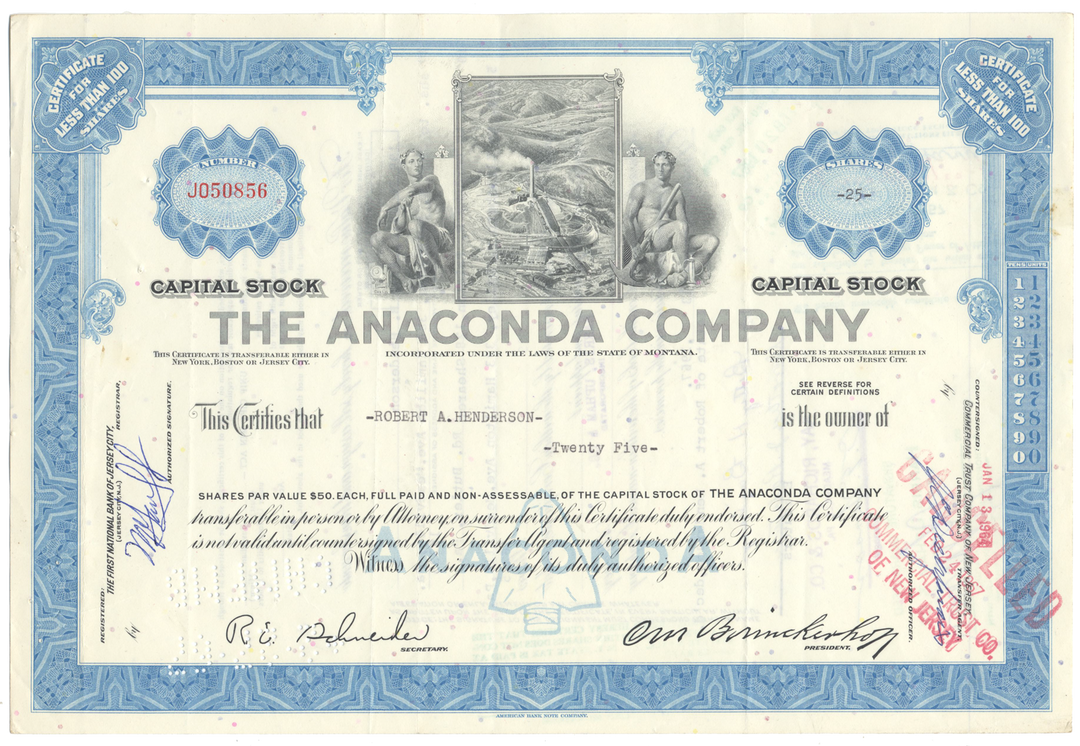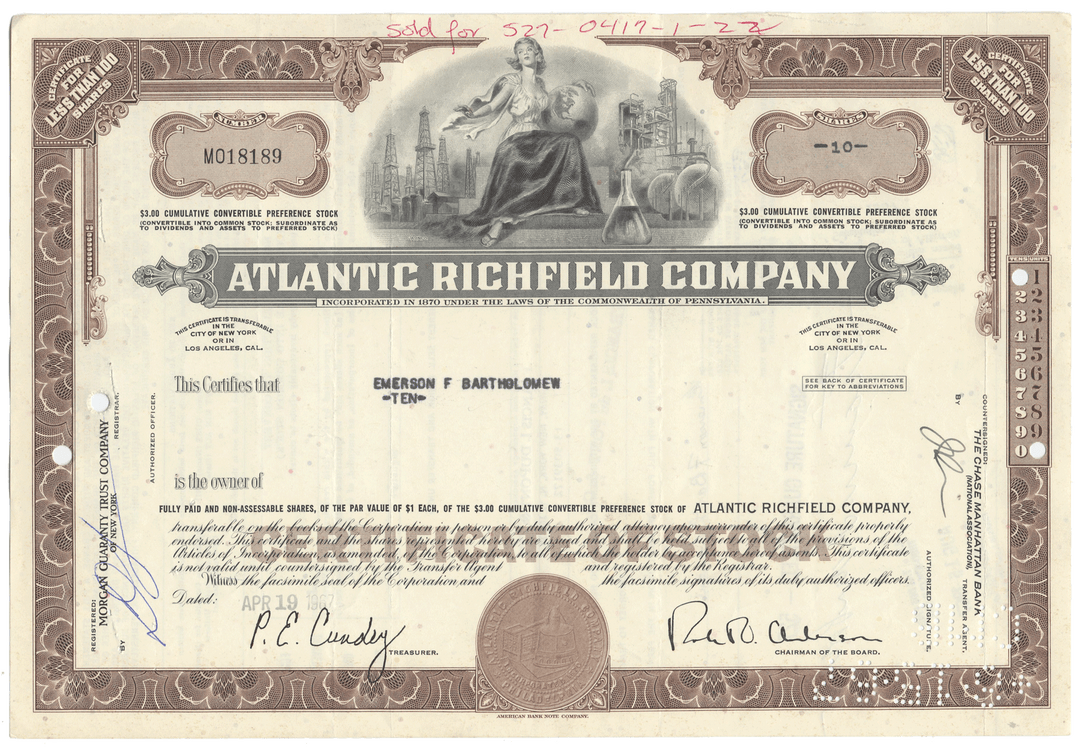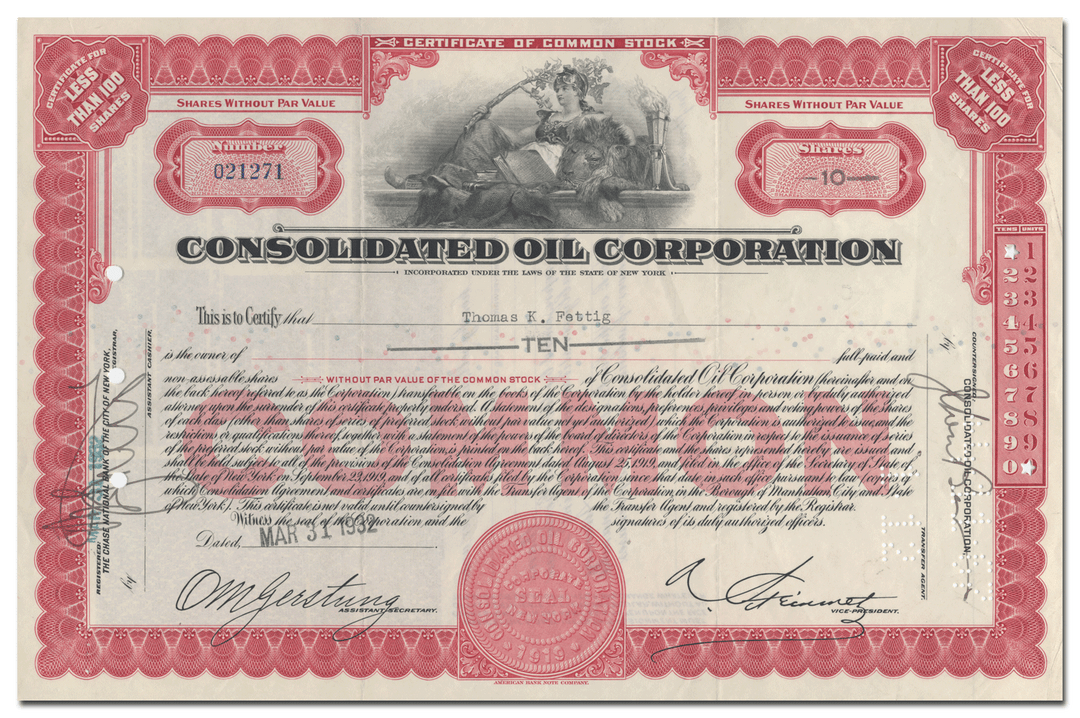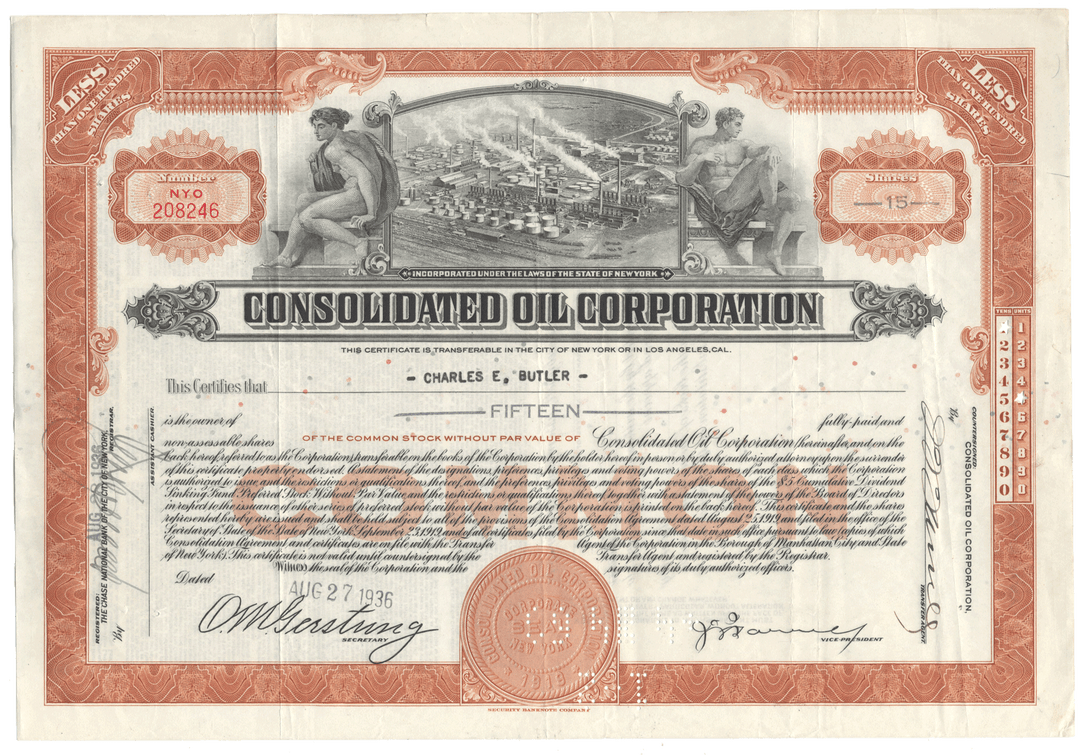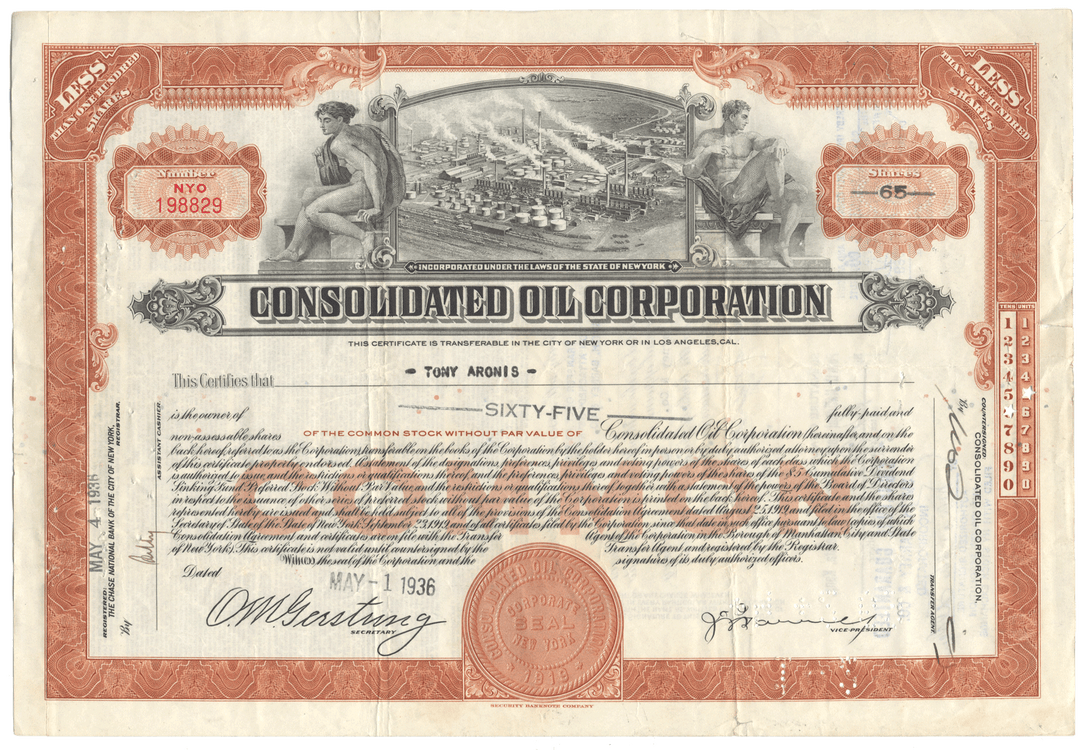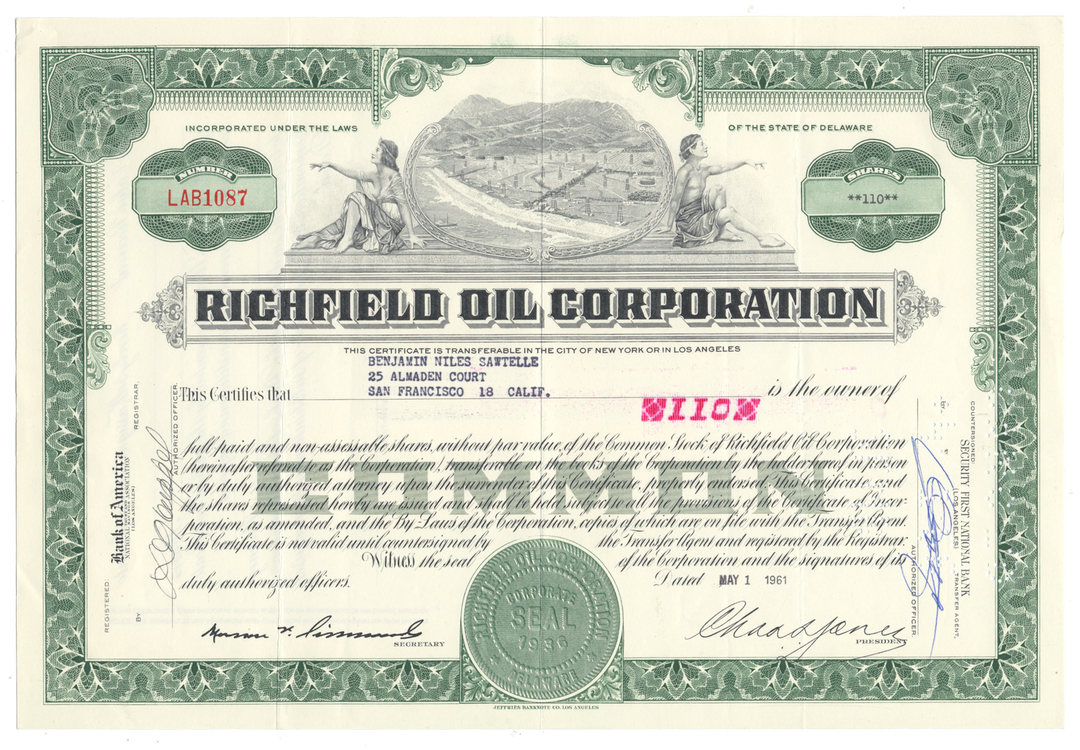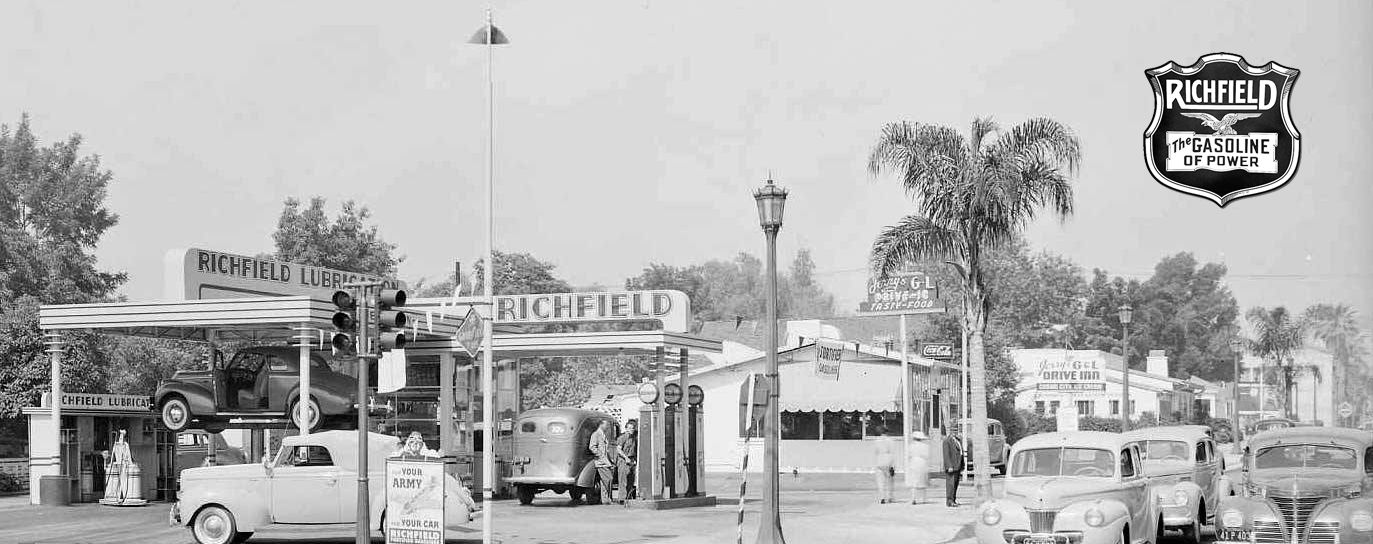
The Richfield Oil Corporation was founded in 1905 and opened its first automotive service station in Los Angeles in 1917. After quick expansion, the company fell to the Great Depression and went into receivership in 1931.
Cities Service Company (now known as Citgo) offered one share of stock for every four Richfield's and acquired a majority of the stock.
Consolidated Oil Corporation (in 1943 renamed Sinclair Oil Corporation), in 1932, offered to buy Richfield Oil. While this offer was not accepted, Harry Ford Sinclair, president of Consolidated Oil, continued to pursue Richfield Oil and prevented Standard Oil of California (now known as Chevron) from taking over the company.
The Consolidated Oil Corporation, in 1935, bought Richfield's eastern United States operations. This maneuver removed Standard Oil of California's interest in Richfield Oil. The east coast gas stations would later be rebranded as Sinclair stations.
Richfield emerged from receivership in 1936 after Rio Grande - controlled by Consolidated Oil - and Cities Service Company agreed to a merger between Richfield Oil and Rio Grande.
During World War II, two Richfield Oil tanks were bombarded by the Imperial Japanese Army on February 23, 1942 in an attack on the Ellwood oil field, which is west of the city of Santa Barbara in California. This attack by the Japanese submarine I-17 was the first attack on continental America during the war.
Richfield Oil sponsored Disneyland's model freeway Autopia from 1955 to 1970.
The company merged with Atlantic Refining to form Atlantic Richfield Corporation, later known as ARCO, in 1966. After spinning off Atlantic Refining to Sonoco, ARCO was purchased by BP p.l.c. in 2000.





